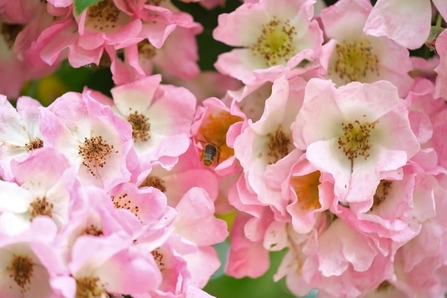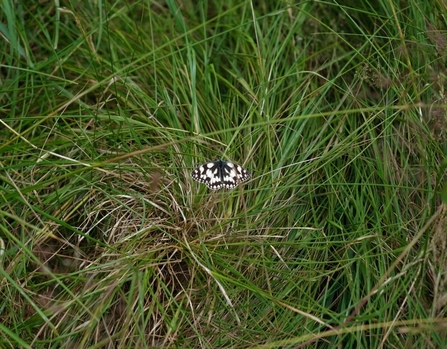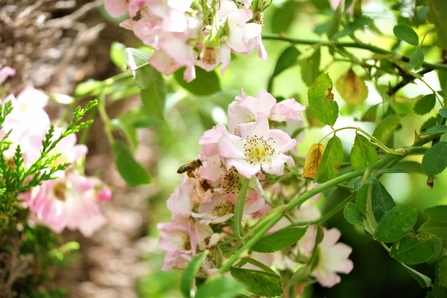Here in the UK, we have several insect pollinators beyond the commonly identified honeybees and bumblebees. The main pollinating species that can be found here in the UK include butterflies, moths, specific fly species and beetles. Pollen redistribution is often exchanged for nectar provisions provided by our native flowers. Honeybees are estimated to pollinate 5-15% of insect-pollinated crops in the UK, with the remaining 85-95% of insect-pollinating crops relying on alternative insect pollinating species. Losing our insect pollinators would results in an economic loss of around £690 million annually through crop loss.
Conserving our insect pollinators

©Rob Brady
Why are our insect pollinators at threat?
Insect pollinators are in decline due to various influential factors. The first of these factors is habitat loss. Urbanisation and agricultural expansion are two of many contributing factors to pollinator habitat loss here in the UK. The increase of urbanisation has resulted in an estimated 97% loss of wildflower meadows since the 1930’s; wildflower meadows provide an essential source of food and habitat for insect species. In addition, along with agricultural expansion also comes increased usage of herbicides and pesticides that can be harmful to many species of wildlife. The most common pesticides that have been frequently discussed in parliament over recent years is neonicotinoids. In 2018, nearly all of EU countries banned the outdoor use of neonicotinoids. However, earlier on this year, the government passed an emergency authorisation for the use of a type of neonicotinoid – thiamethoxam – for usage on sugar beet. Aphids imposed the risk of spreading yellow viruses, that were estimated to cause damage to 70% of national sugar beet crops.

©Rob Brady
What action can you take to help?
- The Surrey Wildlife Trust are holding a pollinator appeal, here you can donate and find out how your donations will make a real difference.
- The Wildlife Trusts have created some helpful tips that you can do at home to help protect insect pollinators right on your doorstep!
- Learn the most suitable forage to grow in your garden for insect pollinators as advised by The Royal Horticultural Society, as well as butterfly and moth food plants recommended by The Butterfly Conservation.
- Sign petitions! A very quick and simple method of aiding a cause but with an often significant impact.

©Rob Brady
By Grace Brady

